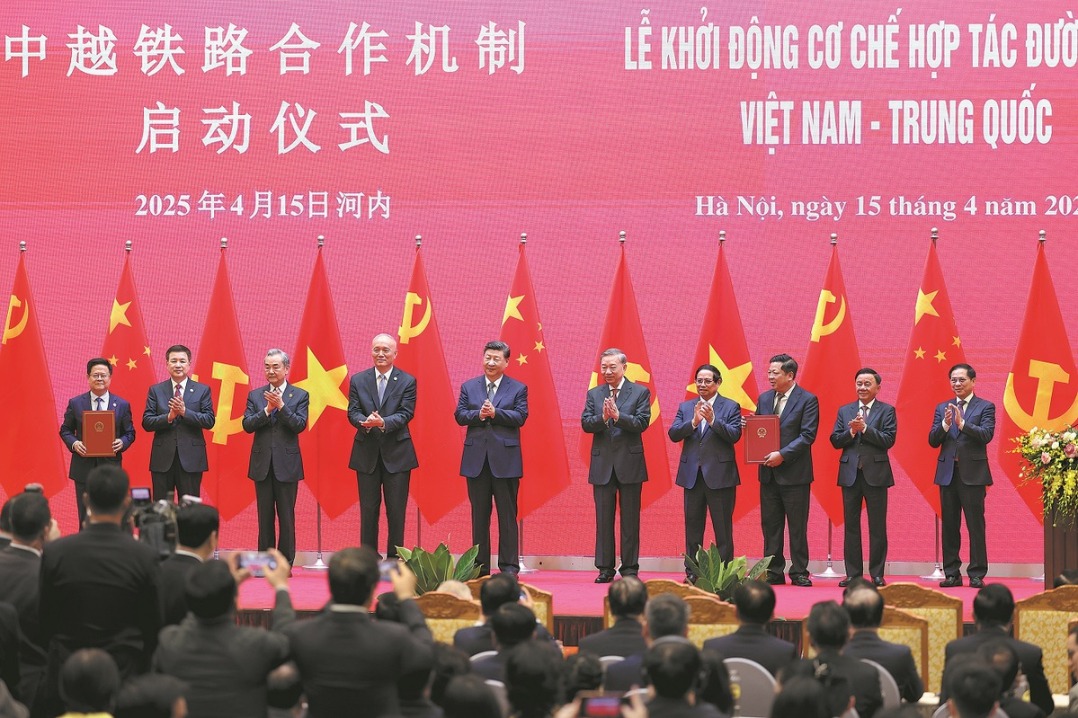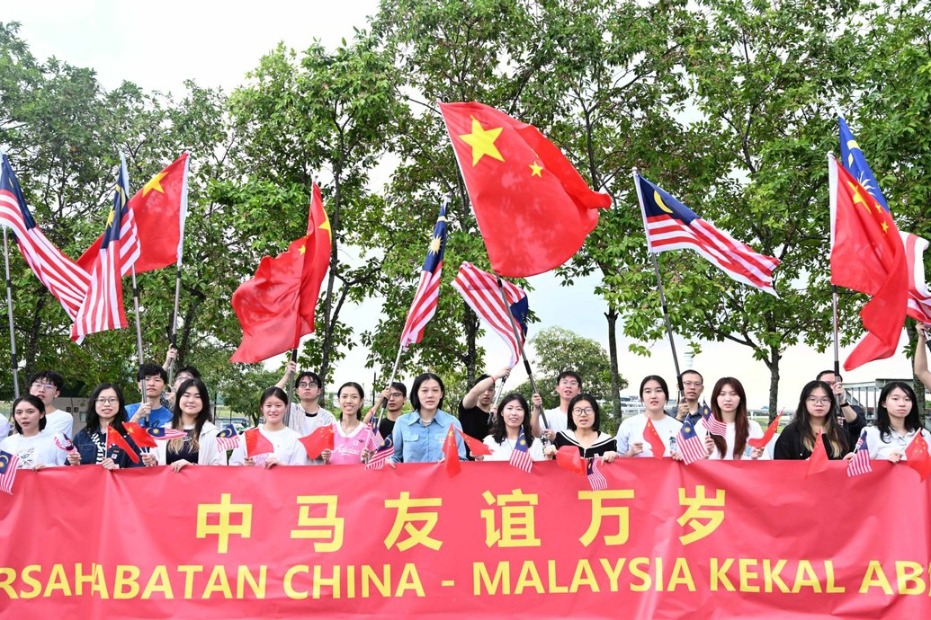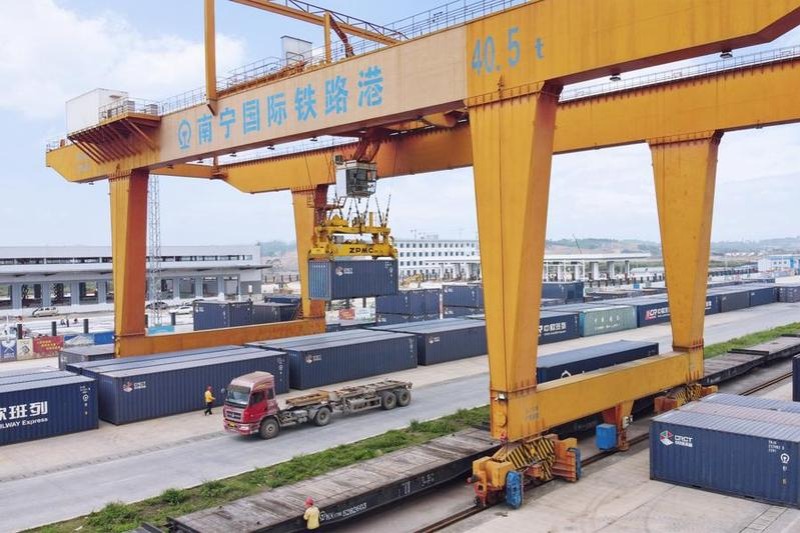China, Malaysia can turn crisis into opportunity


On April 2, the whole world was shocked by the US administration's move to impose tariffs on goods imported from almost all US trading partners, including China and Malaysia. Malaysian goods have been hit with 24 percent tariffs, whereas the tariffs on Chinese goods are as high as 145 percent.
China and Malaysia are close trading partners, with the bilateral trade reaching $212.04 billion in 2024. The two countries are trying to weather the storm of the latest international trade headwinds. Hence, the state visit by Chinese President Xi Jinping to Malaysia (chair of ASEAN in 2025), from Tuesday to Thursday, comes at an opportune time.
However, over the weekend, US President Donald Trump changed his stance and adopted a vague policy regarding whether Chinese-made smartphones and other electronics would be exempt from tariffs.
China manufactures several smartphone brands and assembles Apple's iPhones, and imports some of the chips used in them from Malaysia. With higher tariffs, smartphones exported from China to the US will become more expensive, which could reduce the demand for such smartphones. This in turn will reduce the demand for chips and hence affect one of Malaysia's main manufacturing exports to China. The importance of Malaysian chip exports to China can be gauged from the fact that Malaysia exported $18.5 billion worth of integrated circuits to China in 2023.
It is clear therefore that China and Malaysia are closely integrated on the supply chain, with Malaysia producing the chips, which China needs to manufacture smartphones that it exports to not just the US but also the rest of the world.
Malaysia's chip exports to China will be affected by not only the latest series of US tariffs but also the US CHIPS and Science Act of 2022, which bars the export of any products containing US technology to China. Malaysia is placed in tier-2 of the US' "Framework for Artificial Intelligence Diffusion", which limits access to its advanced AI chips.
The US' punitive tariffs and the disruptions they have caused will lead to short-term chaos for trade policymakers, as they try their best to utilize tariff diplomacy to seek redemption from the US administration.
On the other hand, the US' increased tariffs provide an opportunity for countries to reset their trade and investment policies, and build a new supply chain. To do so, countries across the world should encourage people to change their lifestyle by, among other things, not attending US universities, not watching Hollywood movies, not flying US airlines, not eating American fried chicken and not drinking US-made coffee, because all these are services (including intellectual property and franchise fees) the US has not taken into consideration while calculating its trade balance. The US' trade surplus in services was $278 billion in 2023, driven mainly by the digital economy sector.
This development provides a big opportunity for China, Malaysia and the Association of Southeast Asian Nations to reinvigorate the regional supply chain, and learn to trade in intermediate and finished goods and services within the region. China, Malaysia and the rest of ASEAN member states are parties to the Regional Comprehensive Economic Partnership agreement and the upgraded ASEAN-China Free Trade Agreement, which is expected to be signed in Malaysia this year.
The RCEP has the largest free trade area in the world, covering 30 percent of the global GDP and more than 30 percent of the world's population, with total RCEP-zone trade reaching $5.6 trillion, or about 20 percent of the total world trade volume in 2023 and about 90 percent of all trade within the RCEP zone being tariff-free.
Besides, the RCEP's services liberalization will enable China, Malaysia and the rest of RCEP members to develop important services for regional high-tech supply chain. The services include those incidental to manufacturing, specialized logistics, research and development, and conformity assessments.
Moreover, the RCEP members should reduce the behind-the-borders trade barriers or non-tariff barriers, including licences, quotas, talent mobility restrictions and sub-national regulations, while China, Malaysia and other RCEP members should develop their own key technologies through regional R&D and enhanced intellectual property protection. These are critical areas that the RCEP members need to address so as to enhance the regional semiconductor supply chain.
In fact, this is an opportunity for China and Malaysia to build top-of-the-range smartphones, comparable to or better than US brands, and communicate with regional parties using data centers, technologies and servers belonging to countries in the region, but not the US. Life is full of junctions, and this is the time to make the right decisions. The US administration has made the US' bed and will happily lie in it.
The author is a professor of international trade and investment at the Institute of Malaysian and International Studies, The National University of Malaysia. The views don't necessarily reflect those of China Daily.
If you have a specific expertise, or would like to share your thought about our stories, then send us your writings at opinion@chinadaily.com.cn, and comment@chinadaily.com.cn.
































